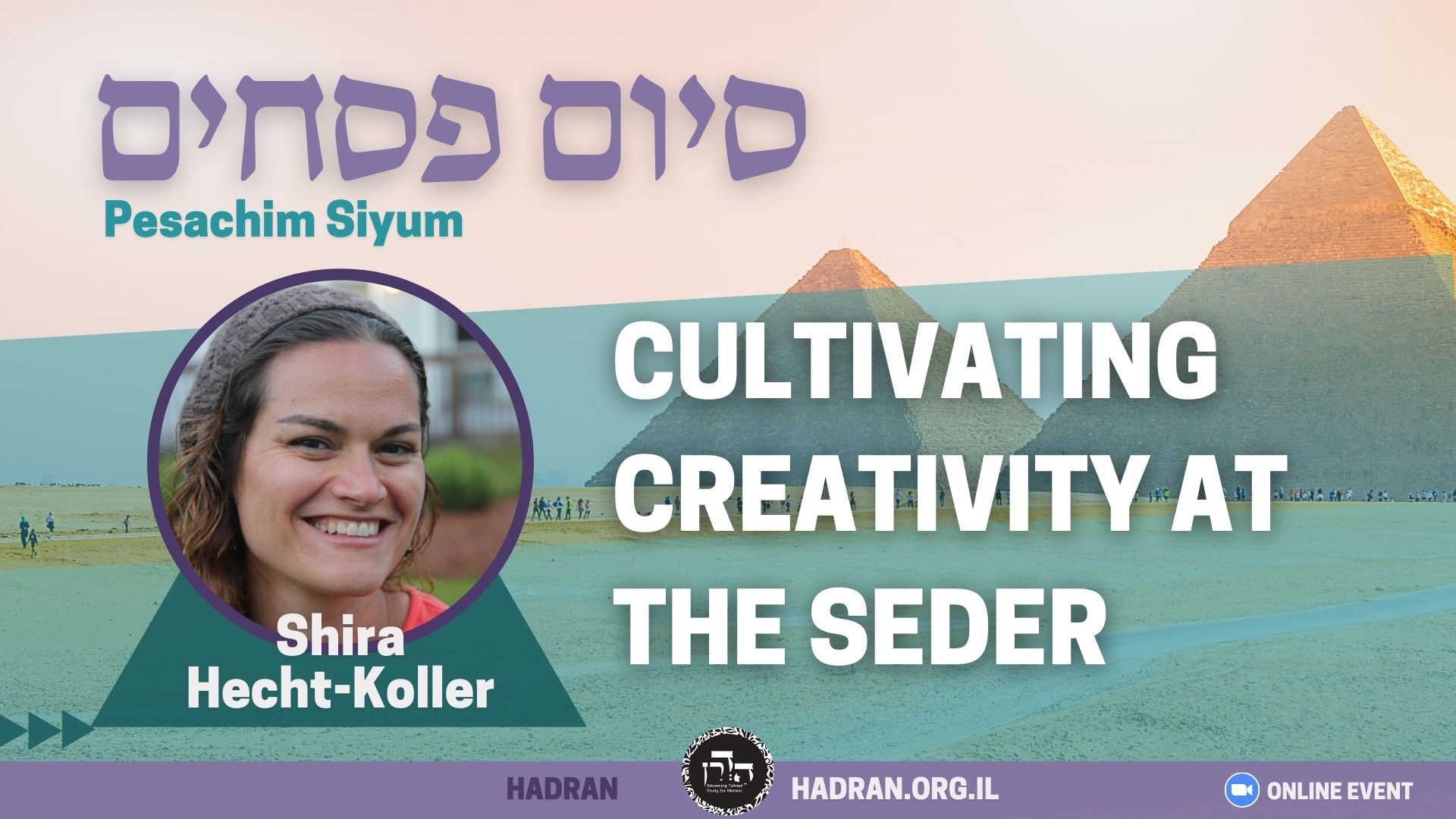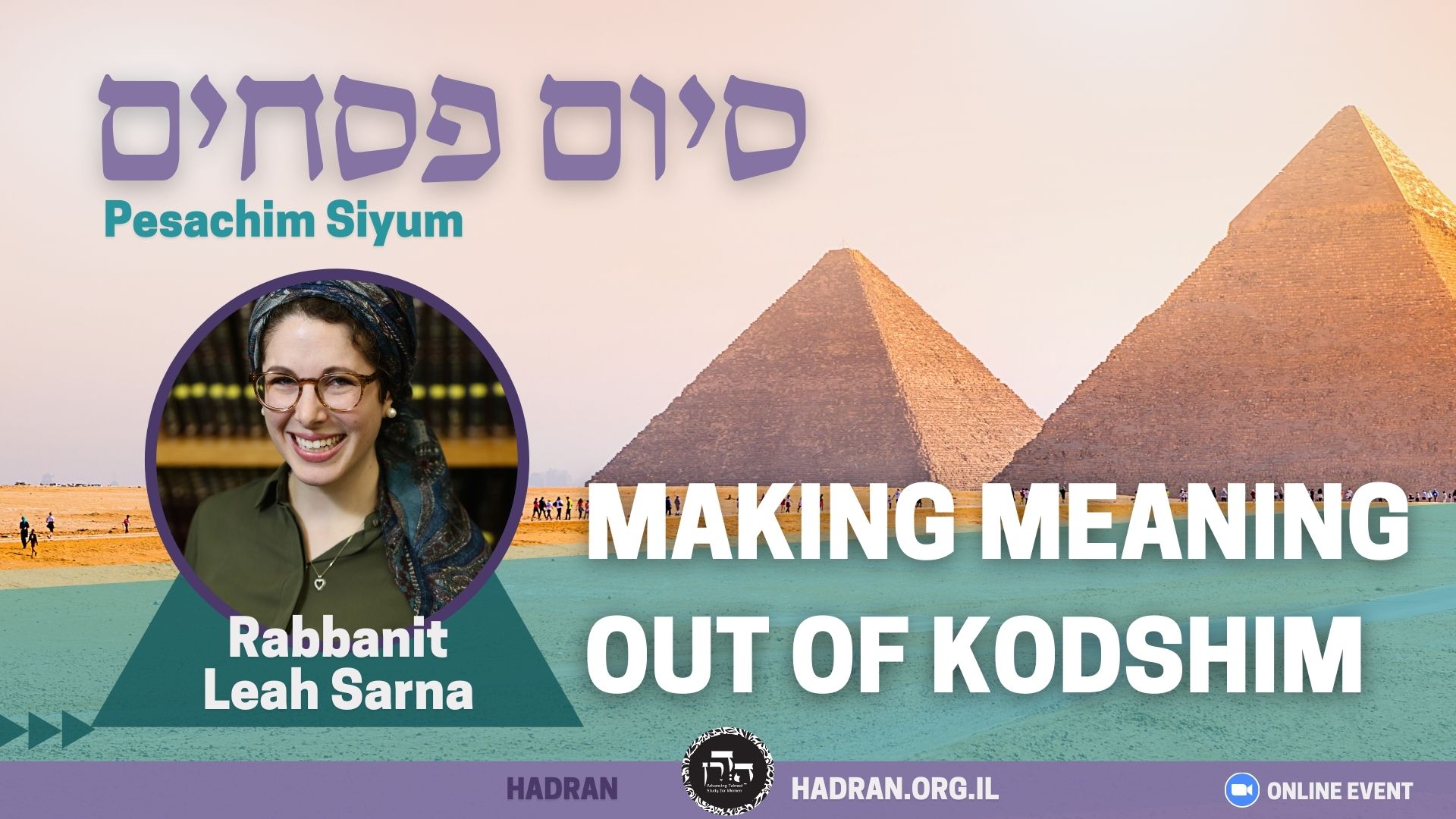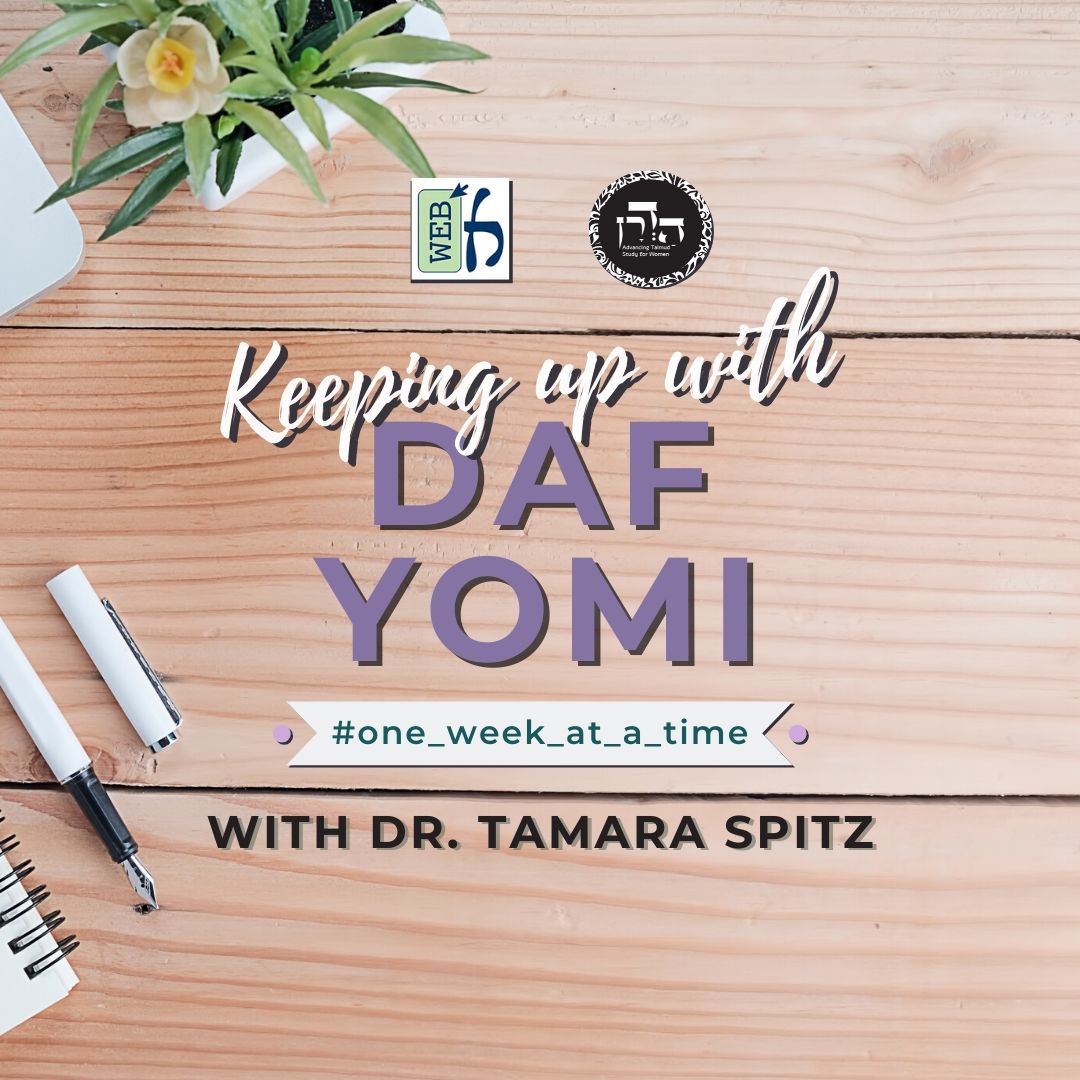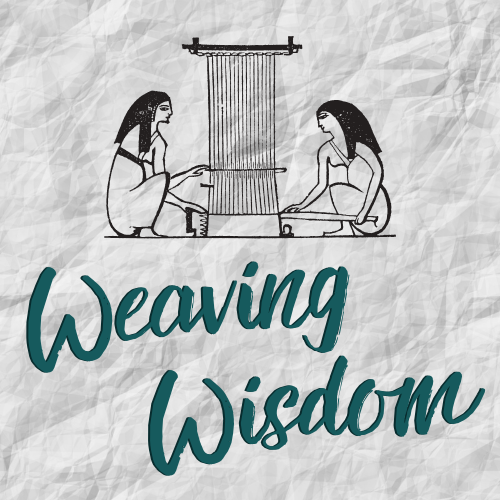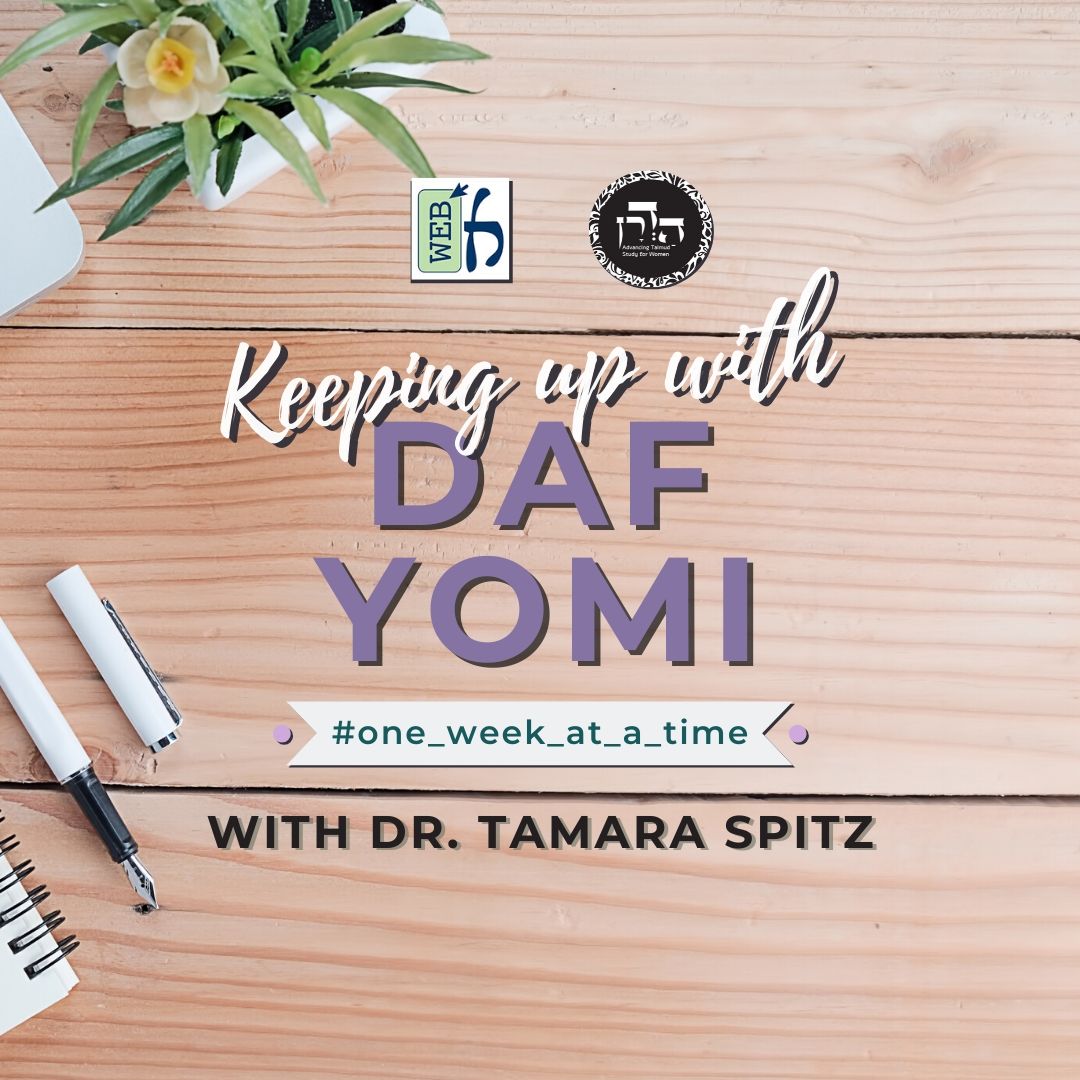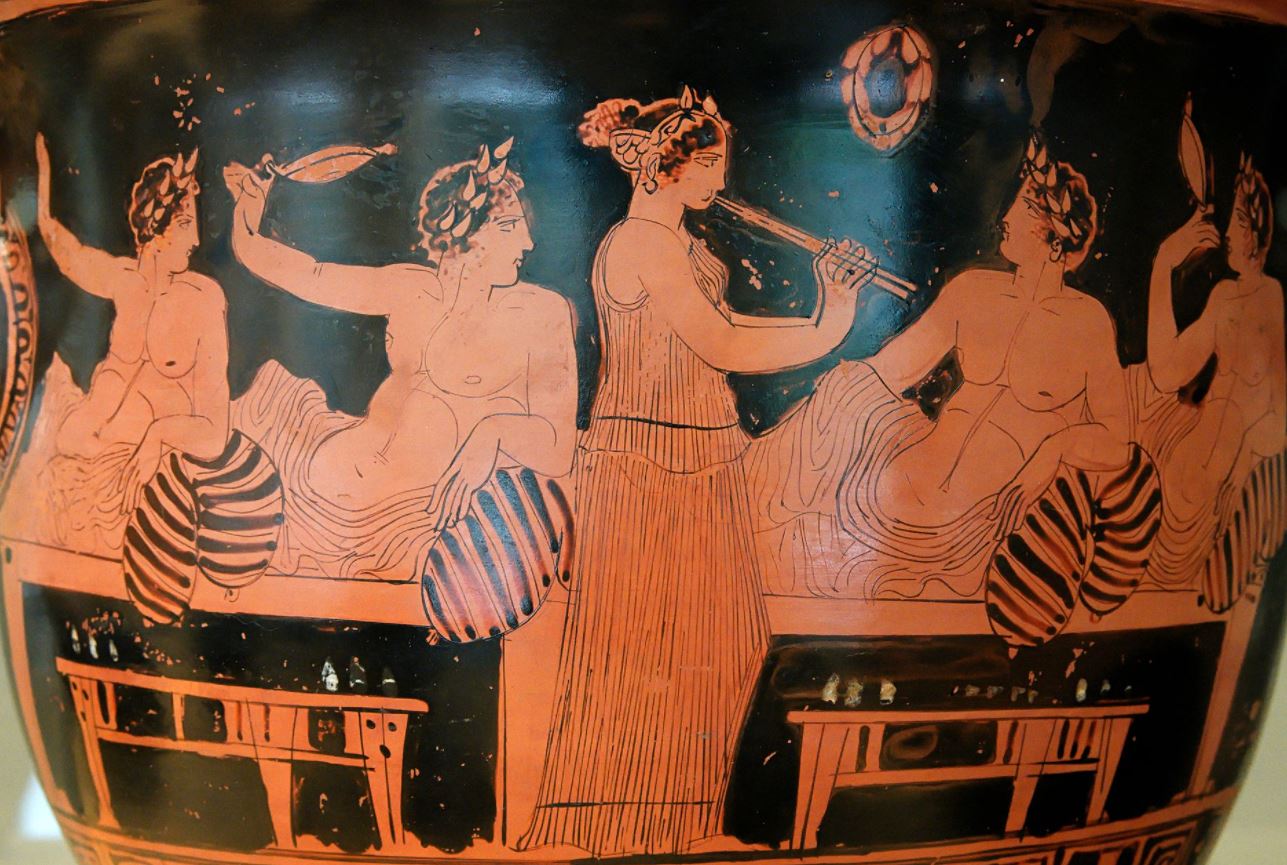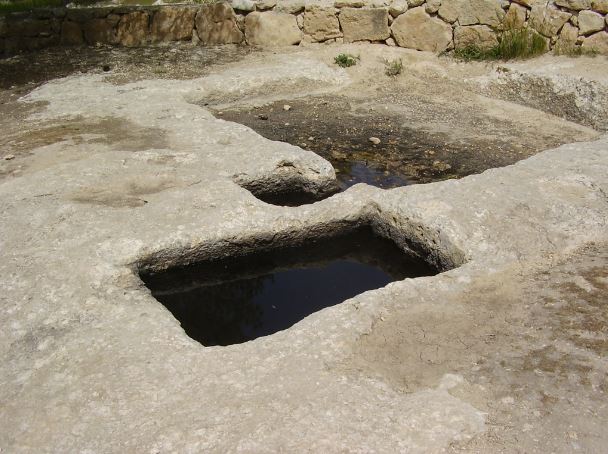Pesachim 110
מִצְוָה בְּאַפֵּי נַפְשַׁהּ הוּא.
is a distinct mitzva in its own right. In other words, each cup is treated separately and one is not considered to be drinking in pairs.
״לֹא יַעֲשֶׂה צְרָכָיו תְּרֵי״, אַמַּאי? נִמְלָךְ הוּא! אָמַר אַבָּיֵי, הָכִי קָאָמַר: לֹא יֹאכַל תְּרֵי וְיִשְׁתֶּה תְּרֵי, וְלֹא יַעֲשֶׂה צְרָכָיו אֲפִילּוּ פַּעַם אַחַת — דִּילְמָא חָלֵישׁ וּמִיתְּרַע.
The baraita taught that one should not attend to his sexual needs in pairs. The Gemara asks: Why should one be concerned for this; he has changed his mind? One does not plan in advance to engage in marital relations twice, and therefore the two acts should not combine to form a dangerous pair. Abaye said: This is what the tanna is saying, i.e., the baraita should be understood in the following manner: One should not eat in pairs nor drink in pairs, and if he does so he should not attend to his sexual needs right afterward even once, lest he is weakened by the act and will be harmed for having eaten or drunk in pairs.
תָּנוּ רַבָּנַן: שׁוֹתֶה כִּפְלַיִם — דָּמוֹ בְּרֹאשׁוֹ. אָמַר רַב יְהוּדָה: אֵימָתַי — בִּזְמַן שֶׁלֹּא רָאָה פְּנֵי הַשּׁוּק, אֲבָל רָאָה פְּנֵי הַשּׁוּק — הָרְשׁוּת בְּיָדוֹ. אָמַר רַב אָשֵׁי: חֲזֵינָא לֵיהּ לְרַב חֲנַנְיָא בַּר בִּיבִי, דְּאַכֹּל כָּסָא הֲוָה נָפֵיק וְחָזֵי אַפֵּי שׁוּקָא.
The Sages taught in another baraita: If one drinks in pairs his blood is upon his head, i.e., he bears responsibility for his own demise. Rav Yehuda said: When is that the case? When one did not leave the house and view the marketplace between cups. However, if he saw the marketplace after the first cup, he has permission to drink another cup without concern. Likewise, Rav Ashi said: I saw Rav Ḥananya bar Beivai follow this policy: Upon drinking each cup, he would leave the house and view the marketplace.
וְלָא אֲמַרַן אֶלָּא לָצֵאת לַדֶּרֶךְ, אֲבָל בְּבֵיתוֹ — לָא. אָמַר רַבִּי זֵירָא: וּלְיָשֵׁן — כְּלָצֵאת לַדֶּרֶךְ דָּמֵי. אָמַר רַב פָּפָּא: וְלָצֵאת לְבֵית הַכִּסֵּא — כְּלָצֵאת לַדֶּרֶךְ דָּמֵי. וּבְבֵיתוֹ לָא? וְהָא רָבָא מָנֵי כְּשׁוּרֵי.
And we said that there is concern for the safety of one who drinks in pairs only when he intends to set out on the road after drinking, but if he intends to remain in his home there is no need for concern. Rabbi Zeira said: And one who plans to sleep is comparable to one who is setting out on the road. He should be concerned that he might be harmed. Rav Pappa said: And going to the bathroom is comparable to setting out on the road. The Gemara asks: And if one intends to remain in his home, is there no cause for concern? But Rava would count the beams of the house to keep track of the number of cups he had drunk so as to ensure that he would not consume an even number.
וְאַבָּיֵי, כִּי שָׁתֵי חַד כָּסָא, מְנַקֵּיט לֵיהּ אִימֵּיהּ תְּרֵי כָסֵי בִּתְרֵי יְדֵיהּ. וְרַב נַחְמָן בַּר יִצְחָק, כִּי הֲוָה שָׁתֵי תְּרֵי כָסֵי, מְנַקֵּיט לֵיהּ שַׁמָּעֵיהּ חַד כָּסָא, חַד כָּסָא — מְנַקֵּיט לֵיהּ תְּרֵי כָסֵי בִּתְרֵי יְדֵיהּ! אָדָם חָשׁוּב שָׁאנֵי.
And likewise Abaye, when he would drink one cup, his mother would immediately place two cups in his two hands so that he would not inadvertently drink only one more cup and thereby expose himself to the danger of drinking in pairs. And similarly, when Rav Naḥman bar Yitzḥak would drink two cups, his attendant would immediately place one more cup in his hand, and if he would drink one cup, the attendant would place two cups in his two hands. These reports indicate that one should be concerned for his safety after drinking an even number of cups, even when he remains at home. The Gemara answers: An important person is different. The demons focus their attention on him, and he must therefore be more careful than the average person.
אָמַר עוּלָּא: עֲשָׂרָה כּוֹסוֹת אֵין בָּהֶם מִשּׁוּם זוּגוֹת. עוּלָּא לְטַעְמֵיהּ, דְּאָמַר עוּלָּא, וְאָמְרִי לַהּ בְּמַתְנִיתָא תָּנָא: עֲשָׂרָה כּוֹסוֹת תִּיקְּנוּ חֲכָמִים בְּבֵית הָאֵבֶל, וְאִי סָלְקָא דַעְתָּךְ עֲשָׂרָה כּוֹסוֹת יֵשׁ בָּהֶן מִשּׁוּם זוּגוֹת, הֵיכִי קָיְימִי רַבָּנַן וְתַקִּנוּ מִילְּתָא דְּאָתֵי לִידֵי סַכָּנָה?! אֲבָל תְּמָנְיָא יֵשׁ בָּהֶן מִשּׁוּם זוּגוֹת.
Ulla said: Ten cups contain no element of the danger associated with pairs. Ulla rules here in accordance with his reasoning stated elsewhere, as Ulla said, and some say it was taught in a baraita: The Sages instituted that one must drink ten cups of wine in the house of a mourner during the meal of comfort. And if it could enter your mind that ten cups do contain the element of danger associated with pairs, how could the Sages arise and institute something that might bring a person to a state of danger? However, eight cups do contain the element of danger associated with pairs.
רַב חִסְדָּא וְרַבָּה בַּר רַב הוּנָא דְּאָמְרִי תַּרְוַיְיהוּ: ״שָׁלוֹם״, לְטוֹבָה — מִצְטָרֵף, לְרָעָה — לֹא מִצְטָרֵף. אֲבָל שִׁיתָּא יֵשׁ בָּהֶן מִשּׁוּם זוּגוֹת.
Rav Ḥisda and Rabba bar Rav Huna both say that eight is also safe from the dangers of pairs, as the number seven, represented by the word shalom, combines with the previous cups for the good but does not combine for the bad. The final verse of the priestly benediction reads: “The Lord lift His countenance upon you and give you peace [shalom]” (Numbers 6:26). The word shalom, the seventh Hebrew word in this verse, has a purely positive connotation. Rav Ḥisda and Rabba bar Rav Huna therefore maintain that the seventh cup combines with the previous six only for good purposes. After the seventh cup, i.e., from the eighth cup and on, the cups constitute pairs for the good but not for the bad. However, six cups do contain the element of danger associated with pairs.
רַבָּה וְרַב יוֹסֵף דְּאָמְרִי תַּרְוַיְיהוּ: ״וִיחֻנֶּךָּ״, לְטוֹבָה — מִצְטָרֵף. לְרָעָה — לֹא מִצְטָרֵף. אֲבָל אַרְבָּעָה יֵשׁ בָּהֶן מִשּׁוּם זוּגוֹת.
Rabba and Rav Yosef both say that even drinking six cups is not dangerous. The reason is that the fifth cup, represented by the word viḥuneka in the second verse of the priestly benediction: “The Lord make His face to shine upon you, and be gracious to you [viḥuneka]” (Numbers 6:25), combines with the previous cups for the good but does not combine for the bad. However, four cups do contain the element of danger associated with pairs.
אַבָּיֵי וְרָבָא דְּאָמְרִי תַּרְוַיְיהוּ: ״וְיִשְׁמְרֶךָ״, לְטוֹבָה — מִצְטָרֵף, לְרָעָה — לֹא מִצְטָרֵף.
Abaye and Rava both say that even the number four is not dangerous, as veyishmerekha, the third word in the first verse of the priestly benediction, reads: “The Lord bless you and keep you [veyishmerekha]” (Numbers 6:24). It combines for the good but does not combine for the bad.
וְאַזְדָּא רָבָא לְטַעְמֵיהּ, דְּרָבָא אַפְּקִינְהוּ לְרַבָּנַן בְּאַרְבָּעָה כּוֹסוֹת, אַף עַל גַּב דְּאִיתַּזַּק רָבָא בַּר לֵיוַאי, לָא חַשׁ לַהּ לְמִילְּתָא, דְּאָמַר: הָהוּא מִשּׁוּם דְּאוֹתְבַן בְּפִירְקָא הֲוָה.
And Rava follows his standard line of reasoning in this regard, as Rava allowed the Sages to leave after having drunk four cups and was not concerned for their safety. Although Rava bar Livai was injured on one such occasion, Rava was not concerned that the matter had been caused by his consumption of an even number of cups, as he said: That injury occurred because Rava bar Livai challenged me during the public lecture. It is improper for a student to raise difficulties against his rabbi during a public lecture, lest the rabbi be embarrassed by his inability to answer.
אָמַר רַב יוֹסֵף, אָמַר לִי יוֹסֵף שֵׁידָא: אַשְׁמְדַאי מַלְכָּא דְשֵׁידֵי — מְמוּנֶּה הוּא אַכּוּלְּהוּ זוּגֵי, וּמַלְכָּא לָא אִיקְּרִי מַזִּיק. אִיכָּא דְּאָמְרִי לַהּ לְהַאי גִּיסָא: אַדְּרַבָּה, מַלְכָּא [רַתְחָנָא הוּא], מַאי דְּבָעֵי עָבֵיד, שֶׁהַמֶּלֶךְ פּוֹרֵץ גָּדֵר לַעֲשׂוֹת לוֹ דֶּרֶךְ וְאֵין מוֹחִין בְּיָדוֹ.
Rav Yosef said: Yosef the Demon said to me: Ashmedai, the king of the demons, is appointed over all who perform actions in pairs, and a king is not called a harmful spirit. A king would not cause harm. Consequently, there is no reason to fear the harm of demons for having performed an action in pairs. Some say this statement in this manner: On the contrary, he is an angry king who does what he wants, as the halakha is that a king may breach the fence of an individual in order to form a path for himself, and none may protest his action. Similarly, the king of demons has full license to harm people who perform actions in pairs.
אָמַר רַב פָּפָּא, אָמַר לִי יוֹסֵף שֵׁידָא: בִּתְרֵי קָטְלִינַן, בְּאַרְבְּעָה לָא קָטְלִינַן, בְּאַרְבְּעָה מַזְּקִינַן. בִּתְרֵי, בֵּין בְּשׁוֹגֵג בֵּין בְּמֵזִיד. בְּאַרְבְּעָה, בְּמֵזִיד — אִין, בְּשׁוֹגֵג — לָא.
Rav Pappa said: Yosef the Demon said to me: If one drinks two cups, we demons kill him; if he drinks four, we do not kill him. But this person who drank four, we harm him. There is another difference between two and four: With regard to one who drinks two, whether he did so unwittingly or intentionally, we harm him. With regard to one who drinks four, if he does so intentionally, yes, he is harmed; if he does so unwittingly, no, he will not be harmed.
וְאִי אִישְׁתְּלִי וְאִיקְּרִי וּנְפַק, מַאי תַּקַּנְתֵּיהּ? לִינְקוֹט זַקְפָּא דִידֵיהּ דְּיַמִּינֵיהּ בִּידָא דִשְׂמָאלֵיהּ וְזַקְפָּא דִשְׂמָאלֵיהּ בִּידָא דְיַמִּינֵיהּ, וְנֵימָא הָכִי: ״אַתּוּן וַאֲנָא — הָא תְּלָתָא״. וְאִי שְׁמִיעַ לֵיהּ דְּאָמַר: ״אַתּוּן וַאֲנָא — הָא אַרְבְּעָה״, נֵימָא לֵיהּ: ״אַתּוּן וַאֲנָא — הָא חַמְשָׁה״. וְאִי שְׁמִיעַ לֵיהּ דְּאָמַר: ״אַתּוּן וַאֲנָא — הָא שִׁיתָּא״, נֵימָא לֵיהּ: ״אַתּוּן וַאֲנָא — הָא שִׁבְעָה״. הֲוָה עוֹבָדָא עַד מְאָה וְחַד, וּפְקַע שֵׁידָא.
The Gemara asks: And if one forgets and it happens that he goes outside after having drunk an even number of cups, what is his solution? The Gemara answers: He should take his right thumb in his left hand, and his left thumb in his right hand, and say as follows: You, my thumbs, and I are three, which is not a pair. And if he hears a voice that says: You and I are four, which makes a pair, he should say to it: You and I are five. And if he hears it say: You and I are six, he should say to it: You and I are seven. The Gemara relates that there was an incident in which someone kept counting after the demon until he reached a hundred and one, and the demon burst in anger.
אָמַר אַמֵּימָר: אֲמַרָה לִי רֵישָׁתִינְהִי דְּנָשִׁים כַּשְׁפָנִיּוֹת: הַאי מַאן דְּפָגַע בְּהוּ בְּנָשִׁים כַּשְׁפָנִיּוֹת, נֵימָא הָכִי: ״חָרֵי חַמִּימֵי בְּדִיקּוּלָא בַּזְיָיא לְפוּמַּיְיכוּ נְשֵׁי דְּחָרָשַׁיָּיא, קָרַח קָרְחַיְיכִי, פָּרַח פָּרְחַיְיכִי,
Ameimar said: The chief of witches said to me: One who encounters witches should say this incantation: Hot feces in torn date baskets in your mouth, witches; may your hairs fall out because you use them for witchcraft; your crumbs, which you use for witchcraft, should scatter in the wind;
אִיבַּדּוּר תַּבְלוּנַיְיכִי, פָּרְחָא זִיקָא לְמוֹרִיקָא חַדְתָּא דְּנָקְטִיתוּ נָשִׁים כַּשְׁפָנִיּוֹת, אַדְּחַנַּנִּי וְחַנַּנְכִי לָא אֲתֵיתִי לְגוֹ, הַשְׁתָּא דַּאֲתֵיתִי לְגוֹ — קַרְחַנְנִי וַחֲנַנְכִי״.
your spices, which you use for your witchcraft, should scatter; the wind should carry away the fresh saffron that you witches hold to perform your witchcraft. As long as I was shown favor from Heaven and you showed me favor, I did not come here. Now that I have come here, your favor toward me has cooled and you should find favor.
בְּמַעְרְבָא לָא קָפְדִי אַזּוּגֵי. רַב דִּימִי מִנְּהַרְדְּעָא קָפֵיד אֲפִילּוּ אַרוּשְׁמָא דְחָבִיתָא. הֲוָה עוֹבָדָא וּפְקַע חָבִיתָא. כְּלָלָא דְמִילְּתָא, כׇּל דְּקָפֵיד — קָפְדִי בַּהֲדֵיהּ, וּדְלָא קָפֵיד — לָא קָפְדִי בַּהֲדֵיהּ, וּמִיהוּ לְמֵיחַשׁ מִיבְּעֵי.
The Gemara relates that in the West, Eretz Yisrael, they were not particular with regard to pairs. Rav Dimi from Neharde’a was particular about pairs even with regard to the signs on a barrel; he would not write pairs of symbols on a barrel. There was an incident in which there were pairs of symbols on a barrel and the barrel burst. The Gemara concludes: The rule of the matter is that all who are particular about pairs, the demons are particular with him; and if one is not particular, they are not particular with him. However, one is required to be concerned about the harm that might result from purposely performing actions in pairs.
כִּי אֲתָא רַב דִּימִי, אָמַר: שְׁתֵּי בֵיצִים, וּשְׁתֵּי אֱגוֹזִין, שְׁתֵּי קִישּׁוּאִין, וְדָבָר אַחֵר — הֲלָכָה לְמֹשֶׁה מִסִּינַי. וּמִסְתַּפְּקָא לְהוּ לְרַבָּנַן מַאי נִיהוּ דָּבָר אַחֵר, וּגְזוּר רַבָּנַן בְּכוּלְּהוּ זוּגֵי מִשּׁוּם דָּבָר אַחֵר.
When Rav Dimi came from Eretz Yisrael to Babylonia, he said: With regard to two eggs, two nuts, two cucumbers, and another matter, there is a halakha transmitted to Moses from Sinai that they are dangerous in pairs. But the Sages are uncertain about what the other matter is, and therefore the Sages decreed that all pairs are prohibited due to that other matter.
וְהָא דַּאֲמַרַן עֲשָׂרָה, תְּמָנְיָא, שִׁיתָּא, אַרְבְּעָה אֵין בָּהֶן מִשּׁוּם זוּגֵי, לָא אֲמַרַן אֶלָּא לְעִנְיַן מַזִּיקִין. אֲבָל לְעִנְיַן כְּשָׁפִים — אֲפִילּוּ טוּבָא נָמֵי חָיְישִׁינַן.
And the Gemara notes that that which we said above, that the numbers ten, eight, six, and four do not cause the danger associated with pairs, we said only with regard to harmful spirits. However, with regard to witchcraft, we are concerned even with regard to one who performed an activity a greater number of times.
כִּי הָא דְּהָהוּא גַּבְרָא דְּגָרְשַׁהּ לִדְבֵיתְהוּ. (אֲזִיל) אִינַּסְבָה לְחַנְוָאָה. כׇּל יוֹמָא הֲוָה אָזֵיל וְשָׁתֵי חַמְרָא. הֲוָה קָא עָבְדָא לֵיהּ כְּשָׁפִים וְלָא קָא מַהְנְיָא לַהּ בֵּיהּ, מִשּׁוּם דַּהֲוָה מִזְדְּהַר בְּנַפְשֵׁיהּ בְּזוּגָא.
This is like that incident involving a certain man who divorced his wife. She went and married a shopkeeper who sold wine in his store. Every day, the first husband would go and drink wine in that shop. His ex-wife would perform witchcraft upon him, and it would not be effective for her in her attempts to harm him because he was careful with regard to pairs.
יוֹמָא חַד אִשְׁתִּי טוּבָא, וְלָא הֲוָה יָדַע כַּמָּה שָׁתֵי. עַד שִׁיתְּסַר הֲוָה צְיִיל וְאִיזְדְּהַר בְּנַפְשֵׁיהּ, מִכָּאן וְאֵילָךְ לָא הֲוָה צְיִיל וְלָא אִיזְדְּהַר בְּנַפְשֵׁיהּ, אַפֵּיקְתֵּיהּ בְּזוּגָא. כִּי הֲוָה אָזֵיל, גָּס בֵּיהּ הָהוּא טַיָּיעָא, אֲמַר לֵיהּ: גַּבְרָא קְטִילָא הוּא דְּאָזֵיל הָכָא. אָזֵיל חַבְּקֵיהּ לְדִיקְלָא, צְוַוח דִּיקְלָא וּפְקַע הוּא.
One day he drank a lot, and he did not know how much he drank. Until he drank sixteen cups, he was lucid and was careful with regard to himself, to keep track of how many cups he had drunk. From here onward he was not lucid and was not careful to watch himself, and she caused him to leave after having consumed a pair, i.e., an even number of cups. As he walked, a certain Arab met him and, noticing that he was bewitched, said to him: It is a dead man who walks here. He went and hugged a palm tree for support; the palm tree dried out due to the witchcraft, and he burst.
אָמַר רַב עַוִּירָא: קְעָרוֹת וְכִכָּרוֹת אֵין בָּהֶם מִשּׁוּם זוּגוֹת. כְּלָלָא דְּמִילְּתָא: כׇּל שֶׁגְּמָרוֹ בִּידֵי אָדָם — אֵין בָּהֶן מִשּׁוּם זוּגוֹת. גְּמָרוֹ בִּידֵי שָׁמַיִם — בְּמִילֵּי מִינֵי דְמֵיכַל חָיְישִׁינַן.
Rav Avira said: Plates and loaves do not contain the element of danger associated with pairs. The Gemara elaborates upon this point: The rule of the matter is that anything whose production was completed by people, whether a vessel or food, they do not contain the element of danger associated with pairs. Conversely, if the object was completed by Heaven, e.g., with regard to types of food, we are concerned.
חֲנוּת — אֵין בָּהֶן מִשּׁוּם זוּגוֹת. נִמְלָךְ — אֵין בָּהֶן מִשּׁוּם זוּגוֹת. אוֹרֵחַ — אֵין בּוֹ מִשּׁוּם זוּגוֹת. אִשָּׁה — אֵין בָּהּ מִשּׁוּם זוּגוֹת. וְאִי אִשָּׁה חֲשׁוּבָה, חָיְישִׁינַן.
Furthermore, a store does not contain the element of danger associated with pairs. If one eats there, there is no danger, as this is not his regular place. If one changed one’s mind after drinking an odd number of cups and added one more, his drinking does not contain the element of danger associated with pairs, as he did not initially intend to drink an even number. The behavior of a guest who eats or drinks in someone else’s house does not contain the element of danger associated with pairs, as his host determines how much he will eat and drink. The behavior of a woman does not contain the element of danger associated with pairs, as demons are not particular with regard to how much a woman eats or drinks. But if she is an important woman, we are concerned.
אָמַר רַב חִינָּנָא בְּרֵיהּ דְּרַבִּי יְהוֹשֻׁעַ: אִיסְפָּרָגוֹס — מִצְטָרֵף לְטוֹבָה, וְאֵין מִצְטָרֵף לְרָעָה.
Rav Ḥinnana, son of Rav Yehoshua, said: Isparegus, a wine-based drink with added spices that people would regularly consume in the morning, combines with the number of cups of wine one has already consumed for the good, to raise the total to an odd number, and does not combine for the bad, to bring the sum to an even number.
אָמַר רָבִינָא מִשְּׁמֵיהּ דְּרָבָא: זוּגֵי — לְחוּמְרָא. וְאָמְרִי לֵיהּ: זוּגֵי — לְקוּלָּא. אָמַר רַב יוֹסֵף: תְּרֵי דְחַמְרָא וְחַד דְּשִׁיכְרָא — לָא מִצְטָרֵף, תְּרֵי דְשִׁיכְרָא וְחַד דְּחַמְרָא — מִצְטָרֵף.
Ravina said in the name of Rava: If one is in doubt as to whether he has drunk in pairs, he should be stringent and drink another cup. And some say that one who is uncertain with regard to pairs should be lenient and not drink an additional cup, lest the additional cup be the even number. Rav Yosef said: Two cups of wine and one cup of beer do not combine; two cups of beer and one cup of wine do combine.
וְסִימָנָיךְ, זֶה הַכְּלָל: כׇּל הַמְחוּבָּר לוֹ מִן הֶחָמוּר מִמֶּנּוּ — טָמֵא, מִן הַקַּל מִמֶּנּוּ — טָהוֹר.
And this is your mnemonic by which to remember this rule is a mishna concerning the halakhot of ritual purity. This is the rule: With regard to anything attached to an object, if the smaller piece is more stringent than the larger one, the combined object is ritually impure; if the attached substance is more lenient than it, the combined object is ritually pure. In other words, if a small piece of a type of fabric that contracts ritual impurity when it is relatively small, which is a stringency, is attached to a larger object comprised of a less valuable fabric that contracts ritual impurity only when it is bigger, the two materials combine to form a unified fabric that contracts ritual impurity if together they amount to the larger requisite size. However, if there is more of the stringent material, the two substances do not combine halakhically to form the amount of the smaller requisite size. Similarly, in the case of pairs, the wine is more significant than the beer. Therefore, the wine combines with the beer but not vice versa.
אָמַר רַב נַחְמָן אָמַר רַב: תְּרֵי קַמֵּי תַּכָּא וְחַד אַתַּכָּא — מִצְטָרְפִי. חַד מִקַּמֵּי תַּכָּא וּתְרֵי אַתַּכָּא — לֹא מִצְטָרְפִין.
Rav Naḥman said that Rav said: If one drinks two cups before the table is brought and the meal begins and one cup over the table they combine, the person is not considered to have drunk a pair of cups. However, if one drinks one cup before the table is brought and two cups over the table they do not combine; the two cups he drank during the meal are considered a pair.
מַתְקֵיף לַהּ רַב מְשַׁרְשְׁיָא: אַטּוּ אֲנַן לְתַקּוֹנֵי תַּכָּא קָא בָּעֵינַן? לְתַקּוֹנֵי גַּבְרָא בָּעֵינַן, וְגַבְרָא קָא מִיתְּקַן וְקָאֵי.
Rav Mesharshiya strongly objects to this ruling: Is that to say that we need to resolve the problem of pairs with regard to the table? Is the presence of the table the decisive factor here? We need to resolve the problem with regard to the person, and with regard to the person it is considered resolved. He began drinking before the table was brought, and he has consumed an odd number of cups.
(אֶלָּא אָמַר רַב מְשַׁרְשְׁיָא): דְּכוּלֵּי עָלְמָא תְּרֵי אַתַּכָּא וְחַד לְבָתַר תַּכָּא — לָא מִצְטָרְפִי. כִּי הַהִיא מַעֲשֶׂה דְּרַבָּה בַּר נַחְמָנִי.
Rather, Rav Mesharshiya said: Everyone agrees that if one drank two cups over the table during the meal and one after the table has been removed, they do not combine. This is like that incident involving Rabba bar Naḥmani, in which someone drank in pairs and was harmed. Rabba instructed them to return the table so that the man could drink an additional cup over the table. This shows that the additional cup counts only if the drinker returns to the table.
אָמַר רַב יְהוּדָה אָמַר שְׁמוּאֵל: כׇּל הַמָּזוּג — מִצְטָרֵף,
Rav Yehuda said that Shmuel said: Any type of drink that is diluted combines to form an even or odd number,





